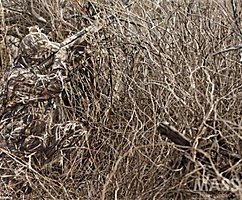Burying beetle disinfected found carrion
 Bashny.Net
Bashny.Net

In order to protect their offspring from a bacterial infection, burying beetle found their prey cover special secret, which contains anti-bacterial enzyme.
Burying beetle known unusual form of care of posterity. A pair of beetles finds the corpse of small mammals or rat and buries it in the ground. Beetles lay their eggs in the immediate vicinity of the "grave" and larvae after hatching are richly covered with "table". Parents can facilitate the work of the larvae by treating the carcass of a fallen animal's own digestive enzymes. Idyll!
Usually dead discovery "takes" one pair of beetles, which drives away the competition. Landfill mining the ground has the same meaning - to prevent its detection by other scavengers and predators. But there is some competition, which is much more difficult to cheat. This bacteria. Microorganisms are immediately taken for the disposal of dead tissue under the ground you can not hide from them, and newborn larvae can meet quite aggressive microflora. How can that be?
And here is how. According to scientists from the University of Manchester (UK), burying beetle smeared fur or feathers of their findings secret special anal glands, which has antibacterial properties. The researchers analyzed the composition of the secretions of the glands at the gravedigger black mustache (Nicrophorus vespilloides) and found the enzyme that breaks down the cell wall of bacteria.
The enzyme lysozyme appeared, a common component of the immune system in animals: it can be detected, for example, in human saliva.
Covered with antibacterial secret carcass waiting gravediggers larvae; without such a "sanitation" of about 40% of the offspring of beetles has no chance to survive. According to the authors, Nicrophorus vespilloides show one of the most notable cases of care of posterity among insects without social behavior.
The findings from their observations of the gravediggers beetles, researchers reported at the 13th Congress of the European Society for Evolutionary Biology.
Tags
See also
The Visitor
How things work: Mystery visitor restaurants
12 products for a slim figure. Some of them will be for your discovery!
Writing stupor: where to find the words, if not
Truth and lies about the raw food diet
10 world famous things we compared and were a little stunned
Exercises for back pain
22-03-2012
Natalia Oreiro
Working in an office
















